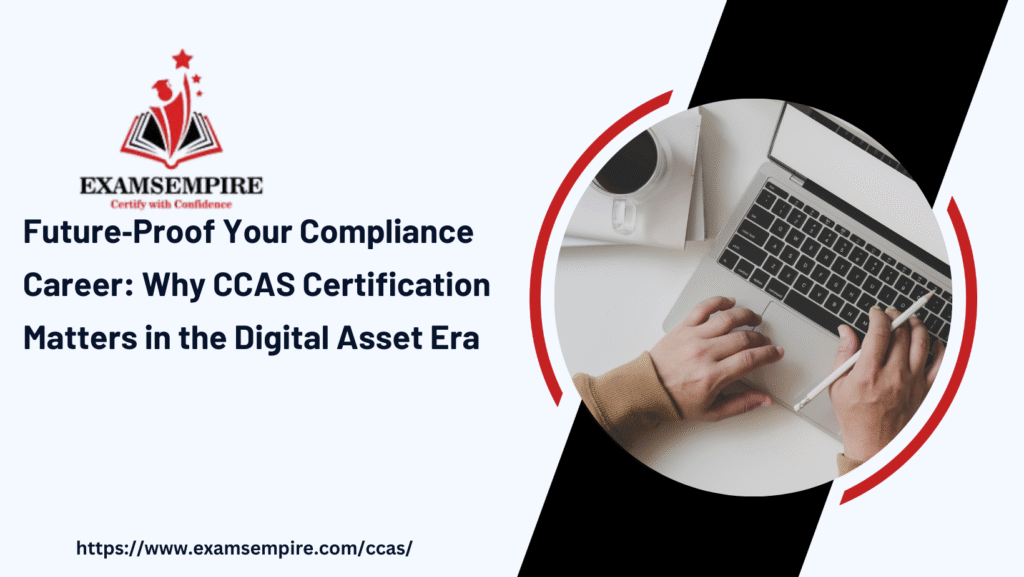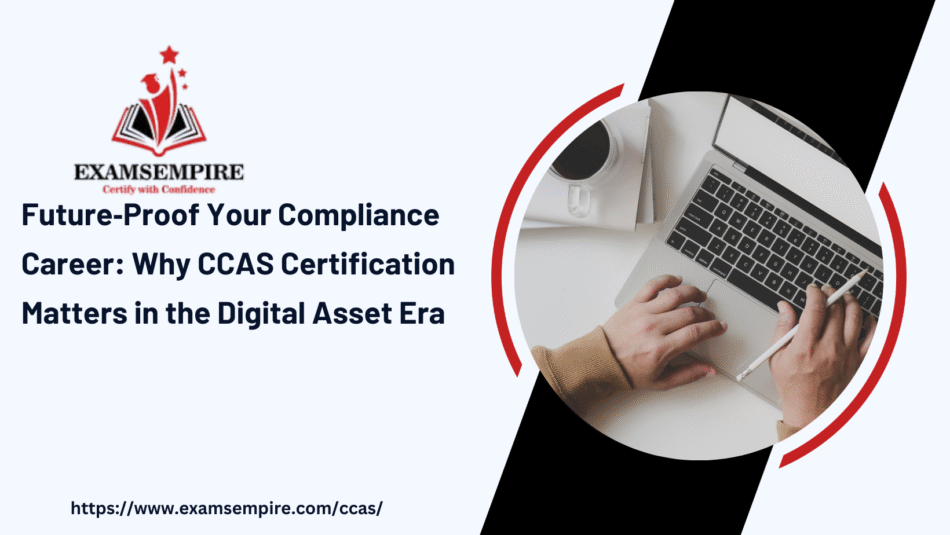What Is the CCAS Certification?
The CCAS certification is intended to prepare anti‑financial crime (AFC) professionals for challenges unique to the cryptoasset sector. It emphasizes:- How cryptoassets and blockchain function
- AML/CFT controls tailored to digital asset environments
- Monitoring crypto transactions and detecting illicit typologies
- Global regulatory frameworks, particularly FATF guidelines
Exam Structure & Eligibility
- Format: Typically consists of 100 multiple-choice and multiple-select questions
- Duration: Around 175 minutes (~3 hours)
- Passing Score: Between 68%–80% depending on provider guidelines
- Eligibility Requirements: ACAMS membership, 18–24 months of relevant AFC experience, and eligibility credits based on training or work history
Exam Content Overview
The CCAS curriculum typically covers these core areas:Understanding Cryptoassets & Technology
- Fundamentals of blockchains and distributed ledger technologies
- Types and use cases (e.g., transfers, smart contracts, DeFi)
- Risk vectors tied to anonymity, pseudonymity, and transaction irreversibility
AML/CFT and Regulatory Frameworks
- Global AML standards and FATF recommendations related to virtual assets
- Jurisdictional differences in regulation and enforcement
- EDD (Enhanced Due Diligence), KYC standards, and suspicious activity reporting
Illicit Finance Typologies and Monitoring
- Common patterns: layering, mixing services, darknet markets, ransomware proceeds
- Red flags within crypto transactions
- Tools and techniques for blockchain analytics and transaction tracing
Compliance Risk Management Strategies
- Building policies and control frameworks for Virtual Asset Service Providers (VASPs)
- Transaction monitoring, risk assessments, and audit trails
- Role of machine learning and AI in detection and compliance automation
- Utilize official study guides or live classes to structure your learning
- Build familiarity with popular blockchain transaction platforms and analysis tools
- Practice scenario-based questions, which are common in exams and mimic real-world challenges
- Time yourself during mock exams to simulate test conditions

Why CCAS Matters
- Responds to clear demand: Financial institutions and regulators need professionals who can navigate crypto risks
- Adds credibility: Earning the CCAS signals to employers and peers that you understand both digital technology and financial crime frameworks
- Future-proofs your career: As regulations tighten and digital assets proliferate, compliance roles increasingly require digital asset literacy
- Promotes best practice across sectors, from banks to digital exchanges to enforcement agencies
Post-Certification Paths
Once certified, CCAS professionals can:- Lead AML/CFT compliance for crypto exchanges and custodians
- Advise traditional institutions integrating blockchain payments
- Support regulatory bodies in investigating crypto-linked crime
- Train teams in crypto‑specific typologies and control frameworks
- Stay on the cutting edge of digital asset regulation and risk management
Article Categories:
Education








